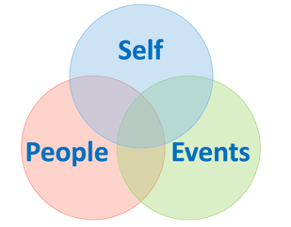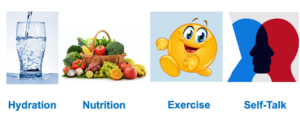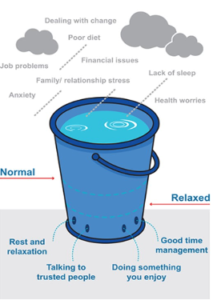Life Coach Brian Tregunna explains how to develop personal resilience in order to cope with stress and fatigue.
Stress is caused by a mismatch between the demands placed upon us and our ability to cope with them. We may be exposed to a variety of potential sources of stress but there are two main types, i.e. chronic and acute.
Chronic Stress occurs when there are long-term demands and pressures over which a person believes they have no control. This may include employment factors such as workload, processes or culture. Or it may be more related to personal factors such as physical health, relationships or bereavement. Alternatively, it may be a combination of personal & professional factors.
Acute Stress occurs when there are short-term demands and pressures associated with recent or on-going events. This includes decision-making, organising and communicating.
Appropriate levels of short-term stress can actually benefit performance as it increases alertness and focus, but excessive acute stress will adversely affect cognitive performance and sustained periods can lead to fatigue.
The impact of stressors on performance depends on an individual’s capacity to cope with them; their personal resilience. Personal resilience therefore consists of an individual’s evaluation of potential stressors and their access to coping strategies to manage them.
Signs of stress include:
- changes in normal behavioural patterns, such as irritability or aggression
- emotional vulnerability, such as anxiety or panic attacks, and
- cognitive difficulties, such as poor concentration and procrastination
Resilient people have the ability to manage emotions in a calm, controlled manner rather than exaggerating problems. They view any mistakes as learning opportunities, rather than being negative about them. They tend to be flexible and adaptable, with a range of different strategies to overcome adversity. They implement actions that will minimise the impact of stress and fatigue before performance is affected.
Personal resilience is a life-skill that can definitely be learned and developed over time, particularly if you seek help from an experienced Life Coach.
Resilience Themes

Resilience can be regarded as a combination of 3 main themes:
- Ourselves: Effectively managing our own mental and physical wellbeing on a regular ongoing basis.
- Other People: Developing positive connections with other people and minimising any negative impact upon our wellbeing through conflict or misunderstandings etc.
- Events: Dealing with stressful personal and professional events such as accidents, ill-health or workload.
Factors that are widely recognised to enhance personal resilience include:
- Experience
- Workload Management
- Pre-planned Systems and Procedures
- Training – to ensure critical aspects of performance are automatic / intuitive
- Perception – about the predictability and controllability of Stressors
- Confidence
- A Positive Outlook
- Personal and Professional support, especially from a qualified coach/therapist
- Physical and Mental Fitness
Here are a few top-tips to help strengthen your personal resilience on a daily basis.
4 Core Pillars
Manage the 4 Core Pillars of personal wellbeing on a regular ongoing basis and you will create a solid foundation for your personal resilience.

Hydration: Drink 2 litres (3.5 pints) of fresh water every day to keep yourself fully hydrated, sharp and alert.
Nutrition: Sustain a healthy balanced diet with plenty of fresh fruit and vegetables to provide your mind and body with sufficient energy.
Exercise: Regular exercise in whatever form suits your health, age and personal interests will help to maintain a healthy mind and body.
Self-Talk: Be careful what you say because you are the one who is always listening. Positive self-talk nurtures the mind whereas negativity is a form of self-harm.
The Stress Bucket
Imagine your mind as being like a bucket that fills-up with various negative stressors. Make sure you are doing activities that will put holes in your bucket to lower the stress level.

Your Personal Battery
Regularly monitor your energy levels. Ask yourself, where is my personal battery level? Just as you recharge your electronic devices, you need to regularly top-up your personal battery. Know what works for you and make it part of your lifestyle. Keep yourself in the green rather than dropping into the red.

There is much more that can be done to manage stress, control anxiety and improve personal resilience, such as learning about mind management, releasing negative emotions and building your self-confidence. If you would like to learn more and discuss your personal needs, contact Brian Tregunna on 07856571163 or tregunnalifecoaching@gmail.com

